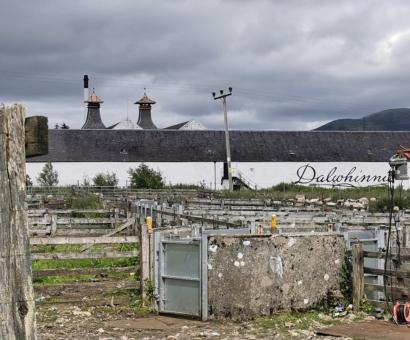Rural Enterprise Hubs
Policy Spotlight - Supporting Scottish Businesses through Rural Enterprise Hubs and Coworking Spaces
Rural Enterprise Hubs are important locations for giving rural businesses a home to grow, network, collaborate and attain new knowledge and skills. This Policy Spotlight explores their wider role in rural development, showcases best practice from elsewhere, and provides recommendations to increase and improve the stock of Hubs in Scotland.
They are defined as "the provision of workspaces to multiple tenant businesses, which are co-located with additional services such as shared equipment, meeting rooms, co-working spaces, and business advice or support". They can be private, public or third sector run and are varied in size (roughly 4 to 60 office provisions). Successful clusters/ networks of Rural Enterprise Hubs can be found in Northumberland (where much of the research reported in this Policy Spotlight was based) and in Ireland.
In a recent evaluation of rural business support in Scotland, one gap highlighted was "the need for accessible business Hubs in rural areas". When compared to other countries/ regions, the stock of Rural Enterprise Hubs in Scotland is limited, and an easily identifiable brand or network of Hubs doesn't yet exist.
Key Takeaways
- Rural Enterprise Hubs help businesses to establish and grow.
- They provide opportunities to network, learn and collaborate.
- They improve tenant wellbeing by helping to overcome social isolation and giving tenants the tools to succeed.
- Business support can be provided through a Hub network.
- Community benefits from Hubs go beyond merely the tenants.
- Creating a joint identity/ brand and network of Hubs in Scotland will help users find a Hub and benefit from their services.
Where do we go from here?
The provision of Enterprise Hubs in Scotland is steadily growing. But more could be done to encourage the creation of Hubs as a means of supporting rural economies and as places for encouraging Community Wealth Building.
Examples of best practice can be found in Ireland and England where group identities/ brands have been created to co-promote a network of Hubs. This makes it easier for potential users to find a Hub near them and for Hub Managers to share best practice.
- The public sector could look to establish their own Hubs using existing infrastructures.
- Alternatively, the private or third sector could be encouraged to set up Hubs through awareness raising or small capital funding.
- Hubs can be a mechanism to help deliver other policy targets around rural business support provision, entrepreneurial ecosystem development, start-up creation and growth, and to address wider agendas around the provision of community facilities and services.
- Providing Hubs with a digital platform to advertise themselves and share best practice has proven highly beneficial elsewhere.
Read the full report below.
Author: Ian Merrell (SRUC)






